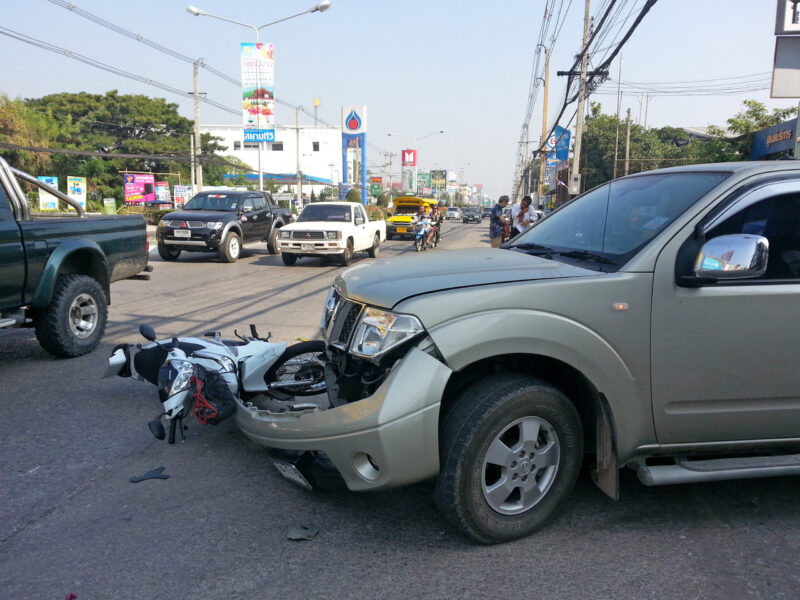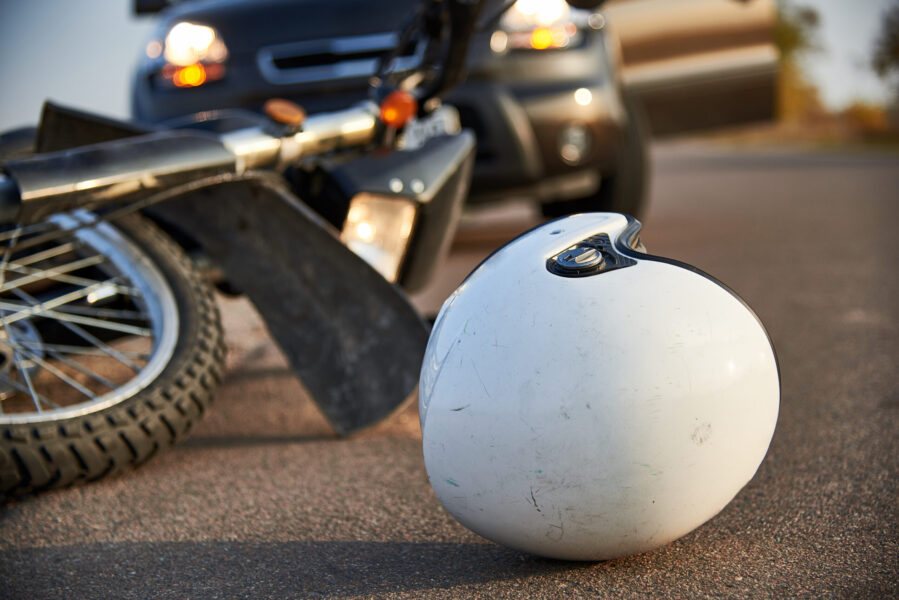When you're involved in a motorcycle accident in Virginia Beach, the aftermath can feel overwhelming.…
The Impact of Weather Conditions on Motorcycle Accident Liability

Motorcycles offer riders a sense of freedom, but they also come with inherent risks, especially in adverse weather conditions. For motorcyclists in Virginia Beach, where the weather can shift rapidly, understanding how weather impacts road safety and liability in accidents is vital. Whether you’re navigating rainy highways or encountering coastal fog, weather conditions can significantly affect both the chances of an accident and the outcome of any resulting legal case.
If you’ve been involved in a motorcycle accident, one of the first questions that arise is, “Who is at fault?” Weather conditions often play a crucial role in determining liability. In this blog, we’ll explore how adverse weather affects motorcycle accident cases and provide practical safety tips for riding in challenging conditions.
How Weather Affects Motorcycle Accidents
Riding a motorcycle already requires more skill and awareness than driving a car, but the challenges multiply when the weather takes a turn for the worse. Here’s how various weather conditions can negatively impact road safety for motorcyclists.
Rain – Rain increases the risk of accidents exponentially by making roads slippery and reducing traction for motorcycle tires. Oil on the road can mix with rainwater, creating a slick surface that’s dangerous for riders. Rain can also impair visibility for motorcyclists and other drivers, making it harder to spot potential hazards.
Fog – Fog is another weather condition frequently encountered in Virginia Beach due to its coastal climate. Dense fog reduces visibility and makes it difficult for motorcyclists to see the road ahead or to be seen by other drivers. This can result in rear-end collisions or lane-change accidents.
Snow and Ice – Although snow is less common in Virginia Beach, even light snowfall can create icy patches on roads. For motorcyclists, these conditions can be nearly impossible to safely navigate, increasing the risks of skidding and losing control.
Wind – Gusty winds along coastal roads can destabilize motorcycles and make it harder to maintain balance, particularly when passing larger vehicles like trucks. Sudden wind shifts can push a motorcyclist into another lane or off the road entirely.
Statistics on Weather and Motorcycle Accidents
According to the U.S. Department of Transportation, approximately 21% of all vehicle crashes are weather-related. Among these, rain and wet pavement account for the majority of accidents. This trend isn’t unique to the country as a whole; in Virginia Beach, where wet and foggy conditions are common, such factors significantly contribute to motorcycle accidents.
Legal Implications of Weather Conditions in Accident Cases
When weather conditions play a role in a motorcycle accident, determining liability can become more complex. Here’s what riders should know about how weather impacts legal cases.
Weather and Liability
Weather itself isn’t considered a liable party in accidents. However, the actions—or inactions—of drivers and riders in response to adverse weather conditions are often scrutinized during legal proceedings. Drivers are expected to exhibit “reasonable care,” adjusting their behavior to account for weather conditions. This means driving slower, increasing following distances, and turning on headlights, among other precautions.
If a motorcyclist or another driver fails to exercise reasonable care in poor weather, they could be found at fault for the accident. For example, a motorcyclist speeding on wet roads or weaving through traffic in heavy fog may share liability.
Contributory Negligence in Virginia
Virginia operates under a contributory negligence system, which means that if a motorcyclist is found to be even 1% at fault for their accident, they may be barred from recovering any compensation. This makes it especially important to prove that weather was the primary contributing factor and that the rider took all necessary precautions to mitigate risks.
The Role of an Attorney
An experienced motorcycle accident attorney will analyze all aspects of the case, including weather conditions at the time of the accident, state traffic laws, and any evidence such as accident reports or witness statements. They’ll work to build a strong case demonstrating that you exercised reasonable care and that another party was at fault for the collision.
Safety Tips for Riding in Adverse Weather
While you can’t control the weather, you can take steps to ride safely and reduce your risk of an accident.
- Wear Proper Gear
Invest in high-quality gear designed for adverse weather. Waterproof jackets and pants, anti-fog visors, and gloves designed for a strong grip are essential. Reflective elements on gear can also improve your visibility to other drivers. - Maintain Your Bike
Ensure your motorcycle is in top condition. Check your tires for proper tread depth and inflation, and keep your brakes and lights fully functional. A well-maintained bike performs better in slippery or low-visibility conditions. - Adjust Your Riding Habits
- Slow Down: Reduce your speed to increase reaction time.
- Increase Following Distance: Leave more room between you and the vehicle ahead to allow for longer stopping distances.
- Avoid Sudden Movements: Make gradual turns and lane changes to maintain control.
- Plan Your Route
If possible, avoid riding in extreme weather by checking the forecast before heading out. If you’re caught in a storm or fog, seek safe shelter until conditions improve. - Be Extra Vigilant
Stay hyper-alert to your surroundings, watching for potential hazards like standing water, potholes, or other drivers who may be struggling with the weather.
Protect Yourself—Know Your Rights
Weather conditions add a layer of complexity to motorcycle accident cases, but one thing is clear—it’s vital to exercise caution and understand your rights. Liability in motorcycle accidents often hinges on a motorcyclist’s ability to demonstrate that they took every precaution while riding in adverse weather.
If you’ve been involved in a motorcycle accident in Virginia Beach, reach out to the experienced Motorcycle Injury Attorneys for guidance. We’ll help you understand your legal options and work tirelessly to secure the compensation you deserve.
Call 757-695-9660 today to schedule your consultation and take the first step in protecting your rights.







This Post Has 0 Comments